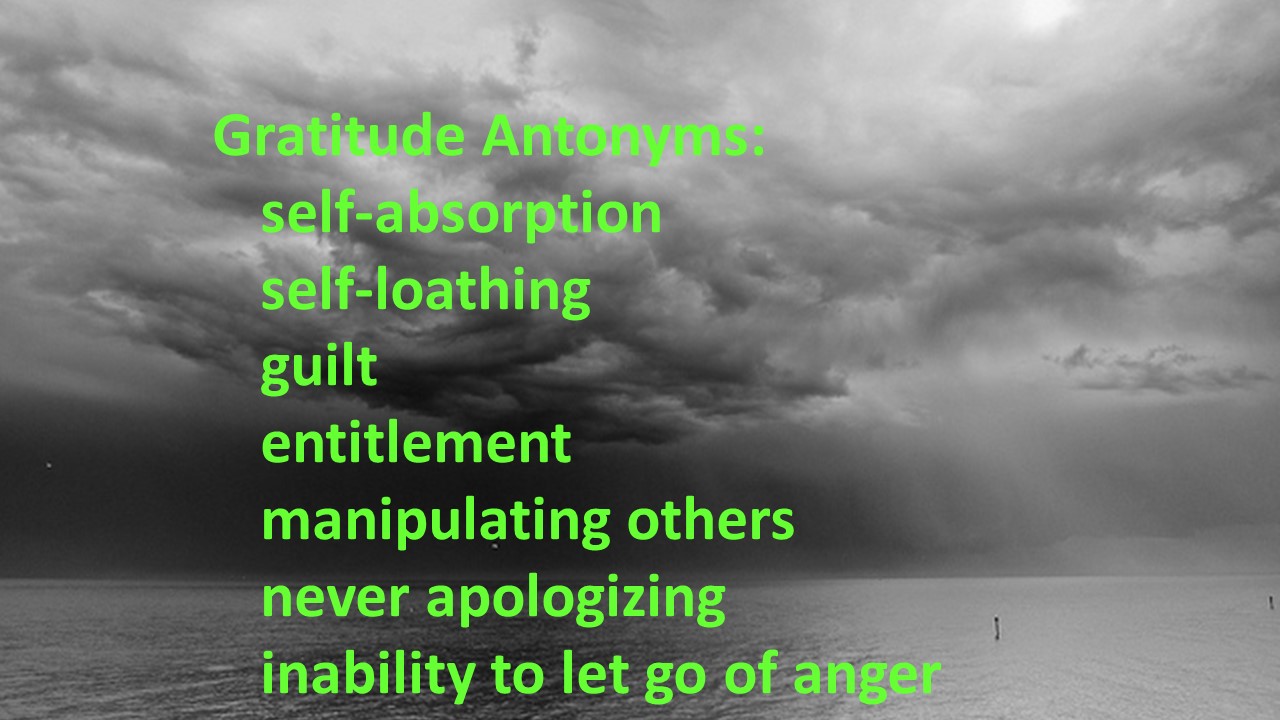In a NY Times article, Barbara Ehrenreich suggests that claims attached to gratitude are hollow. Laying on a yoga mat feeling grateful doesn’t provide gratitude to anyone who deserves it such as migrant farm workers with aching backs. She questions the attitude of gratitude for the $8 an-hour Walmart employee who gets a raise to $9, while the CEO earns $1 million. The crux of her argument is that research funds are not spent to improve the conditions of the less fortunate, but to improve their attitudes. Moreover, she finds these conversations with the self, such as counting blessings, writing in a journal one-sided. We feel the benefits of gratitude and bask in its glow without doing a thing to help those for whom we need to be most grateful to, Ehrenreich asserts.
She views gratitude as a way to keep unjust order in place. What Ehrenreich missed was some hard science with strong legs on how gratitude leads to more generosity. It is pro-social as it enhances our dependence on other people. Without a grateful mindset, we get pulled into the negativity bias making it difficult to see the good in our lives. A grateful person is less materialistic and has stronger relationships. This person will contribute more generously to others and to society. The key to gratitude is recognizing how other people have contributed to what’s good in your life. Once one is able to do this, it makes it difficult to feel entitled, which can motive us to pay it forward; a sense of humility and generosity flow from the gratitude.
Gratitude helps us out of protracted anger and rumination on what has gone wrong for us. It allows us see the forces and people who have helped to bring good into our lives. True gratitude empowers and moves us away from the role of helpless victim; it transforms our experience. To be sure, gratitude can be used inappropriately, if you are being abused, or use it to hide behind a serious problem. It is not a fake smile, or accepting the unacceptable, rather it helps us cope and build resilience in the face of setbacks. Being grateful is not suppressing negative feelings, it is a cul-de-sac out of them, a tilt toward what is working well.
When we find ourselves in a state of prolonged despair, the antidote is not the brave attempt to cheer ourselves up with empty positive thoughts. Gratitude arises from paying attention to one’s thoughts and feelings. The goal is to become independent of imprisoning thoughts through awareness. There is overwhelming evidence that the universe is especially kind to those with a grateful heart.
“Gratitude is not only the greatest of virtues, but the parent of all the others.” Cicero


Eileen,
I started reading this with dismay…I could not believe you were going to agree with her. And you didn’t. Thank you. Gratitude is so important for each person, but also important in the work we do where at times it can feel defeating due to constant unnecessary struggle.
Gratitude = blessings.
Many blessings to you,
~ Barbara
Thank you Barbara: Yes we could not do what we do without it. But find its a practice and often not the first place I go… Progress. Great to hear from you. Smiles, Eileen